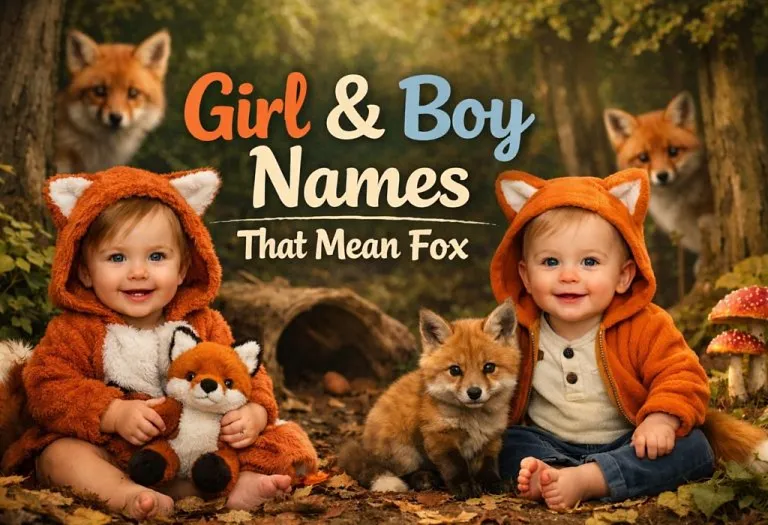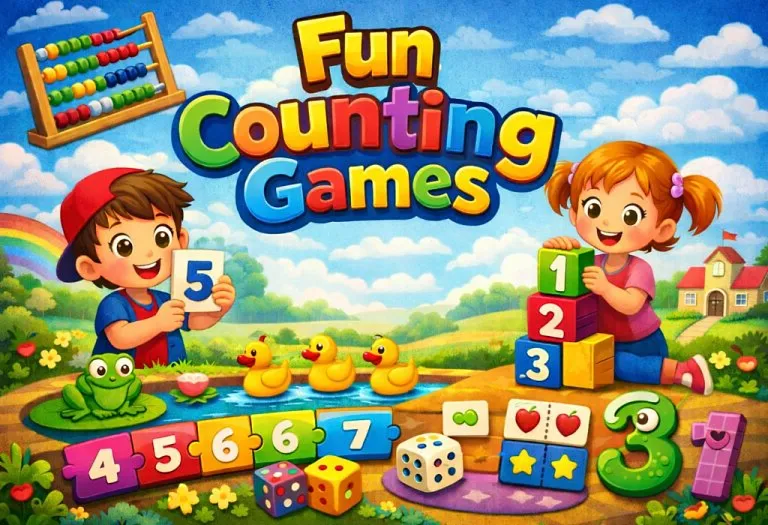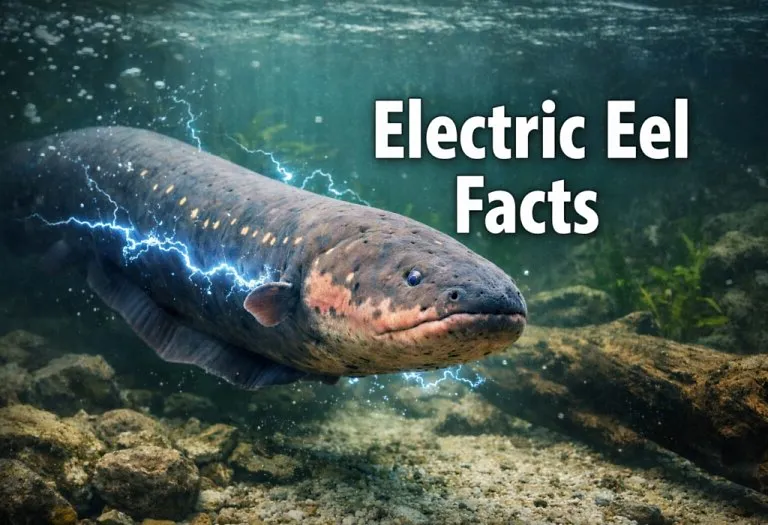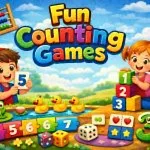Verbs That Start With W in English (With Meanings & Examples)
- What Are the Verbs Beginning With W?
- Common Verbs Starting With W
- Action Verbs That Start With W
- Positive Verbs That Start With W
- More Verbs That Begin With W
- FAQs
When we think about enhancing the vocabulary for kids, verbs are a fantastic start. Verbs are the action words that bring sentences to life, painting pictures of what’s happening in stories and conversations. Today, we’re diving into the vibrant world of verbs that start with W for preschoolers and kids. This exploration is not just about memorising words; it’s about igniting a passion for language and storytelling. From ‘whisper’ to ‘wander,’ each verb carries its own magic, ready to transform simple sentences into captivating narratives. Whether you’re a parent, educator, or curious learner, join us on this delightful linguistic adventure, perfect for enriching the vocabulary for kids and sparking their imagination.
What Are the Verbs Beginning With W?
Verbs starting with W encompass a wide array of actions and states of being, from the physical to the emotional. These verbs with W offer a rich palette for expression, allowing children and adults to convey actions as diverse as ‘wait,’ ‘whisper,’ ‘wrestle,’ or ‘wonder.’ Engaging with these verbs opens up new avenues for communication and creativity, enriching our daily language with vivid descriptions and nuanced emotions.
Common Verbs Starting With W
Exploring the English language reveals a rich tapestry of verbs that add action, movement, and life to our sentences. In this section, we delve into common English verbs starting with W provide insights into their meanings and illustrate their use through examples.
1. Wait – To stay in place or to delay an action until a particular time
Example: I will wait for you outside the cinema.
2. Walk – To move at a regular pace
Example: Every morning, she likes to walk her dog in the park.
3. Want – To have a desire to possess or do (something); wish for
Example: I want to learn a new language this year.
4. Warn – To inform someone in advance of a possible danger, problem, or other unpleasant situation
Example: The weather report warned of heavy rain tonight.
5. Wash – To clean with water
Example: Please wash your hands before dinner.
6. Waste – To use or expend carelessly, extravagantly, or to no purpose
Example: It’s not good to waste.
7. Watch – To look at or observe
Example: We like to watch the sunset from the balcony.
8. Wave – To move one’s hand to and fro in greeting or as a signal
Example: She waved goodbye as the train departed.
9. Wear – To have something on one’s body or a part of one’s body as clothing, decoration, or protection
Example: He loves to wear his vintage leather jacket.
10. Weep – Weep means to shed tears, especially as an expression of distress or pain
Example: She couldn’t help but weep during the sad movie.
11. Weigh – To find or measure out how heavy (someone or something) is, typically using scales
Example: You should weigh the flour before adding it to the mixture.
12. Welcome – To greet (someone arriving) in a polite or friendly way
Example: They always welcome guests with a warm smile.
13. Whisper – To speak very softly
Example: They whispered secrets to each other in the dark.
14. Water – To provide water to something
Example: The gardener is very lazy and does not water the plants daily.
15. Write – To mark (letters, words, or other symbols) on a surface, typically paper, using a pen, pencil, or similar implement
Example: She likes to write poetry in her free time.
This overview of English verbs starting with W enhances our understanding of the language’s versatility and expressive power, offering us new ways to convey actions and emotions.
Action Verbs That Start With W
Action verbs that start with the letter W vividly describe activities and movements. This selection showcases the variety of actions we can express, from physical movements to mental processes, enriching our ability to communicate effectively. Each verb starts with letter W is unique and suitable for children and adults to memorise.
1. Wander – To walk or move in a leisurely or aimless way
Example: He likes to wander through the streets of the old town, discovering new places.
2. Wrap – To cover or enclose someone or something in paper or soft material
Example: She wrapped the gift carefully, adorning it with ribbons.
3. Wipe – To clean or dry (something) by rubbing its surface with a cloth, a piece of paper, or one’s hand
Example: After washing the dishes, he wiped the countertop clean.
4. Wield – To hold and use (a weapon or tool)
Example: The knight wielded his sword bravely in battle.
5. Withdraw – To remove or take away (something) from a particular place or position
Example: She withdrew some cash from the ATM for her shopping trip.
6. Wither – to become dry and shrivelled or to cause (someone) to feel mortified or humiliated
Example: The plants withered in the intense heat of the summer sun.
7. Wonder – To feel curiosity or doubt about something
Example: Children often wonder about the stars and the moon.
8. Work – To be engaged in a physical or mental activity to achieve a purpose or result
Example: She works hard every day to support her family.
9. Worry – To feel anxious or troubled
Example: He tends to worry about exams, even though he studies thoroughly.
10. Worship – To show reverence and adoration for (a deity)
Example: Many people worship together in churches, mosques, temples, and synagogues.
11. Weave – To form (fabric or a fabric item) by interlacing long threads
Example: Her grandmother taught her how to weave beautiful blankets.
12. Whistle – To emit a clear, high-pitched sound by forcing breath through a small hole between one’s lips or teeth
Example: He can whistle the melodies of popular songs with ease.
13. Widen – To make or become wider
Example: The city plans to widen the road to reduce traffic congestion.
14. Wobble – To move unsteadily from side to side
Example: The table wobbles a bit because one leg is shorter than the others.
15. Woo – To seek the favour, affection, or love of (someone), especially with a view to marriage
Example: He tried to woo her with flowers and romantic dinners.
Including these action verbs that start with the letter W in your vocabulary will enable you to describe a wide range of activities and intentions, from the mundane to the profound, with greater precision and flair.
Positive Verbs That Start With W
Positive verbs that start with W refer to actions that convey optimism, encouragement, and constructive outcomes. These verbs bring a sense of joy, achievement, and positive interaction to our communications, enhancing our expressions with uplifting and hopeful undertones.
1. Welcome – To greet (someone) warmly and with pleasure upon their arrival
Example: They always welcome new members into the community with open arms.
2. Win – To achieve victory in a contest or endeavour; be successful or victorious
Example: She managed to win the scholarship against tough competition.
3. Wish – To hope for something that is not easily attainable
Example: I wish you all the best in your future endeavours.
4. Wonder – Wonder means to feel admiration and amazement; marvel
Example: We wonder at the beauty of the natural world.
5. Woo – Toseek the support or favour of someone, in addition to its romantic connotations
Example: The company aimed to woo new clients with its innovative product.
6. Work – Making efforts to achieve a goal, leading to positive results
Example: Their team works well together to create successful outcomes.
7. Widen – To make or become broader
Example: Traveling helps to widen one’s understanding of different cultures.
8. Worship – To show reverence or devotion, not just religiously but also to express profound respect
Example: People worship the heroes who have made significant contributions to society.
9. Warm – To make someone feel affectionately fond; to fill with gentle feelings
Example: Her kind words warmed his heart.
10. Wave – A friendly gesture of greeting or farewell, which can brighten someone’s day
Example: She waved cheerfully to her neighbours every morning.
11. Whiten – To make or become white or much lighter
Example: The morning sun began to whiten the darkened sky.
12. Weave – Creating stories or narratives, often bringing joy and entertainment to others
Example: He could weave fascinating tales that captivated all who listened.
13. Whisper – Sharing secrets or intimate details in a way that creates bonds between people
Example: They would often whisper sweet nothings to each other.
14. Wield – To exercise (power or influence) effectively and beneficially
Example: She wielded her knowledge to help solve the community’s problems.
15. Waken – To rouse from sleep; to stir interest or the start of a new beginning
Example: The motivational speaker aimed to waken a sense of purpose in his audience.
Incorporating these positive verbs beginning with “W” into our dialogue and writing not only enriches our language but also encourages a more optimistic and constructive interaction with the world around us.
More Verbs That Begin With W
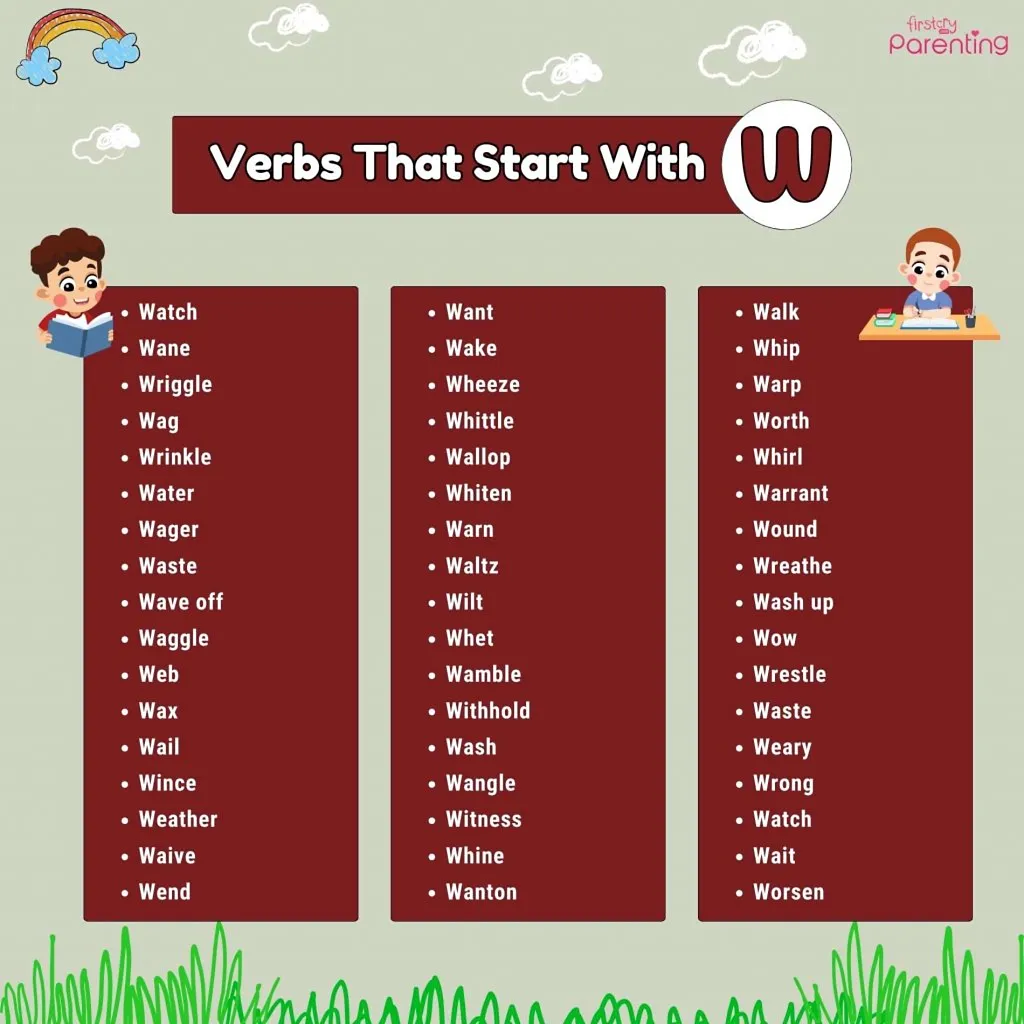
Let’s expand our exploration of verbs starting with W beyond common and action-oriented verbs. From expressions of emotion to physical actions, these verbs cover a broad spectrum of verbs.
| Verb | ||
| Waddle | Wane | Wriggle |
| Wag | Wrinkle | Water |
| Wager | Warble | Wave off |
| Waggle | Web | Wax |
| Wail | Wince | Weather |
| Waive | Wend | Wed |
| Wake | Wheeze | Whittle |
| Wallop | Whiten | Wheedle |
| Waltz | Wilt | Whet |
| Wamble | Withhold | Whimper |
| Wangle | Witness | Whine |
| Wanton | Worsen | Whip |
| Warp | Worth | Whirl |
| Warrant | Wound | Wreathe |
| Wash up | Wow | Wrestle |
| Waste | Weary | Wrong |
| Watch | Wedge | |
This extensive list of verbs beginning with W demonstrates the linguistic richness available to us, enabling more precise and vivid expressions in our writing and speech.
FAQs
1. What are some common verbs that start with the letter W?
Common verbs starting with W include ‘wait,’ ‘walk,’ ‘wish,’ ‘work,’ and ‘write,’ each of which adds a unique action or state of being to sentences.
2. How can using a variety of verbs starting with W enhance writing?
Utilizing a variety of verbs that start with W can enhance writing by adding depth and precision to descriptions, thereby making narratives and expositions more engaging and vivid.
From expressing simple daily activities to depicting complex emotional states, this vast array of verbs that start with W enhances communication, making it more expressive. By incorporating such diverse verbs into our vocabulary, we can elevate our language skills, enriching both our personal expression and our ability to connect with others.
Also Read: Verbs That Start With A to Z
| A | B | C | D | E | F | G | H | I | J | K | L | M |
| N | O | P | Q | R | S | T | U | V | W | X | Y | Z |
Was This Article Helpful?
Parenting is a huge responsibility, for you as a caregiver, but also for us as a parenting content platform. We understand that and take our responsibility of creating credible content seriously. FirstCry Parenting articles are written and published only after extensive research using factually sound references to deliver quality content that is accurate, validated by experts, and completely reliable. To understand how we go about creating content that is credible, read our editorial policy here.






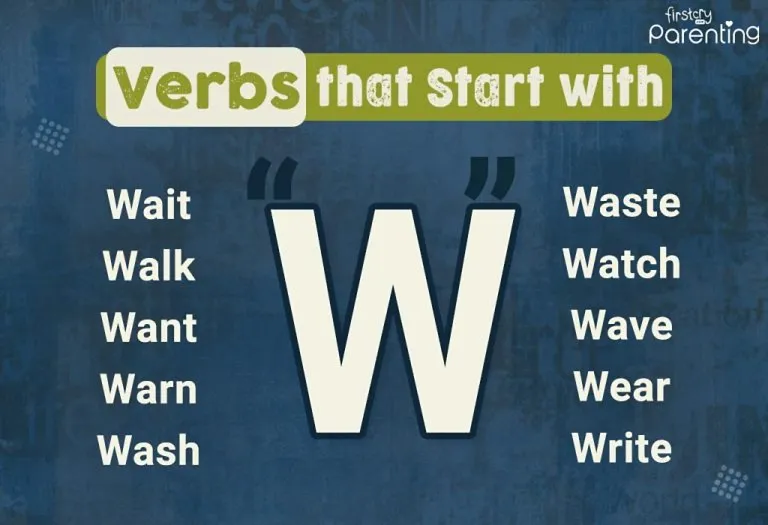


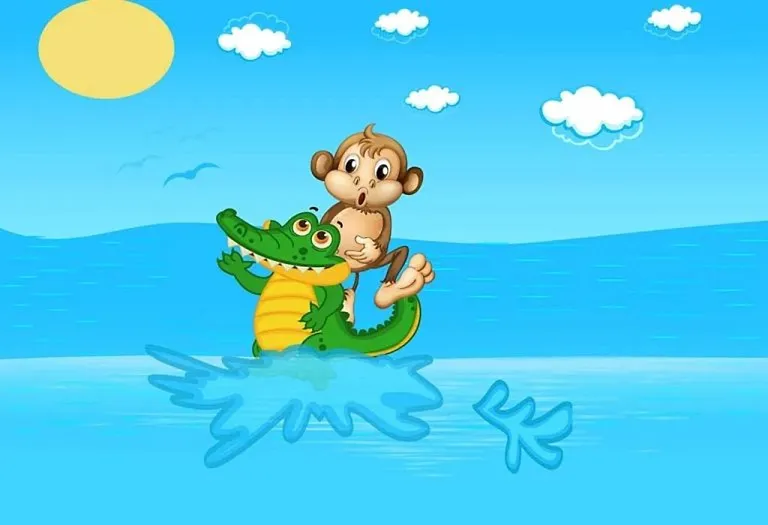
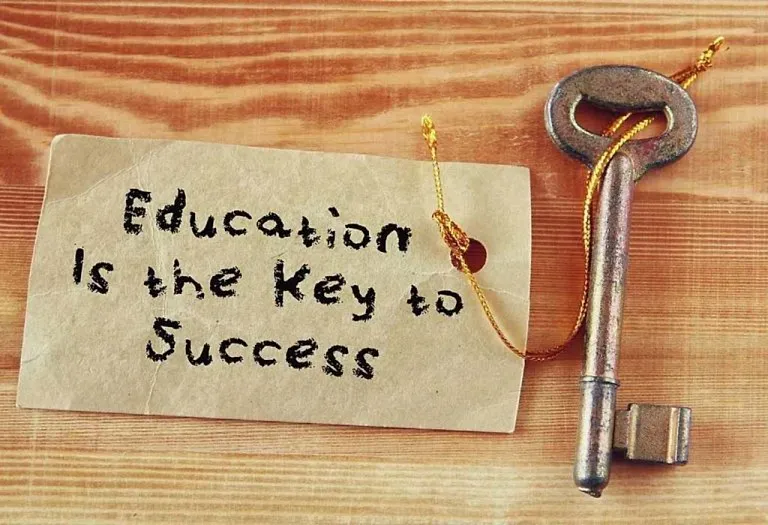
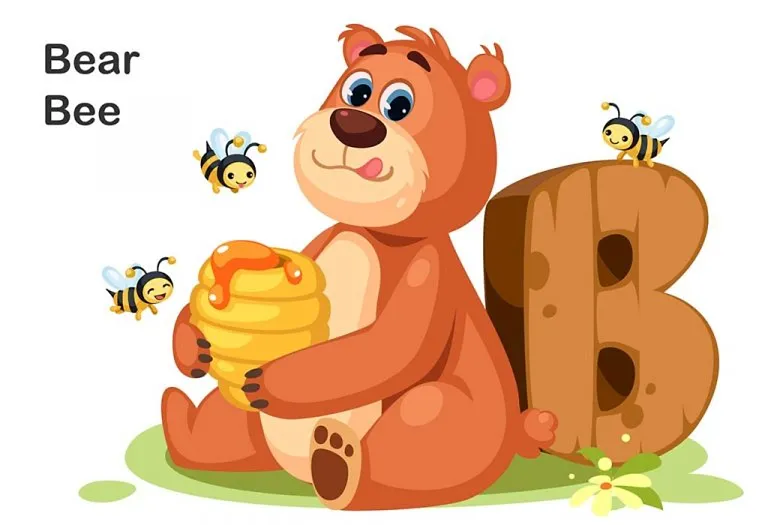
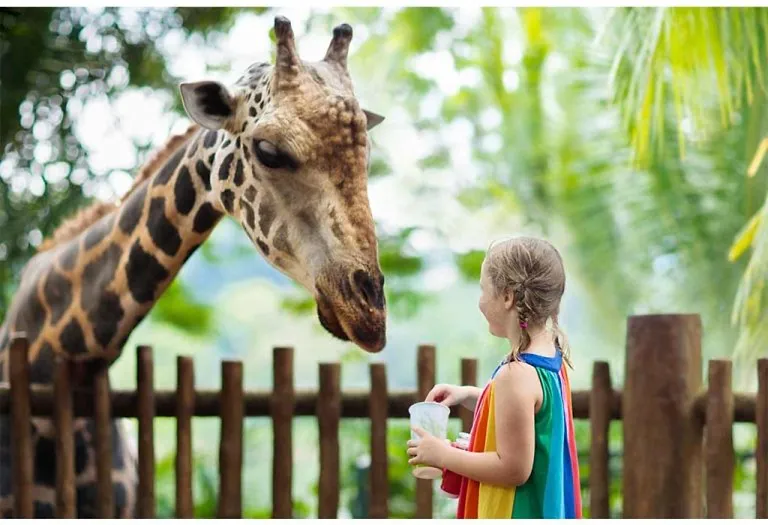

.svg)







